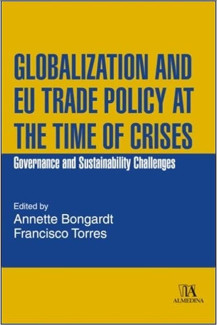
Description
This book provides a political economy analysis of new globalization challenges and EU trade policy, at a time when the Union faces multiple crises and a weakened multilateral trade order. It analyses governance and sustainability challenges and evaluates the EU’s response. Chapters examine the need for cooperation in global governance in the light of recent crises and the political difficulties of doing so. They seek to better understand what the observed shift from multilateralism to preferential trade agreements, namely the proliferation of deep trade agreements, means for global and regional trade, and how EU trade dynamics interact with the European model. The book also discusses the lessons from the EU’s Comprehensive Economic and Trade Agreement (CETA) with Canada, a deep trade agreement that served as a blueprint for later ones. As the traditional EU free trade stance has been increasingly tested by a combination of crises and geopolitics, some chapters shed light on the EU’s trade policy response and on the impact on global value chains. The book concludes with taking stock of what we have learned and of how EU trade policy copes with new challenges, bringing together the different perspectives on global cooperation and trade, deep trade agreements, EU deep trade agreements and the lessons from CETA, the EU’s Trade and Sustainability Chapters, and the European (economic, social, environmental) model. List of contributors: Annette Bongardt and Francisco Torres; Vitor Gaspar and David Amaglobeli; Aaditya Mattoo, Nadia Rocha and Michele Ruta; Jeffry Frieden; Helena Guimarães; Francisco Pereira Coutinho; Patrick Leblond and Crina Viju-Miljusevic; Sjorre Couvreur, Ferdi De Ville, Thomas Jacobs and Jan Orbie; Eline Blot; Pompeo Della Posta.